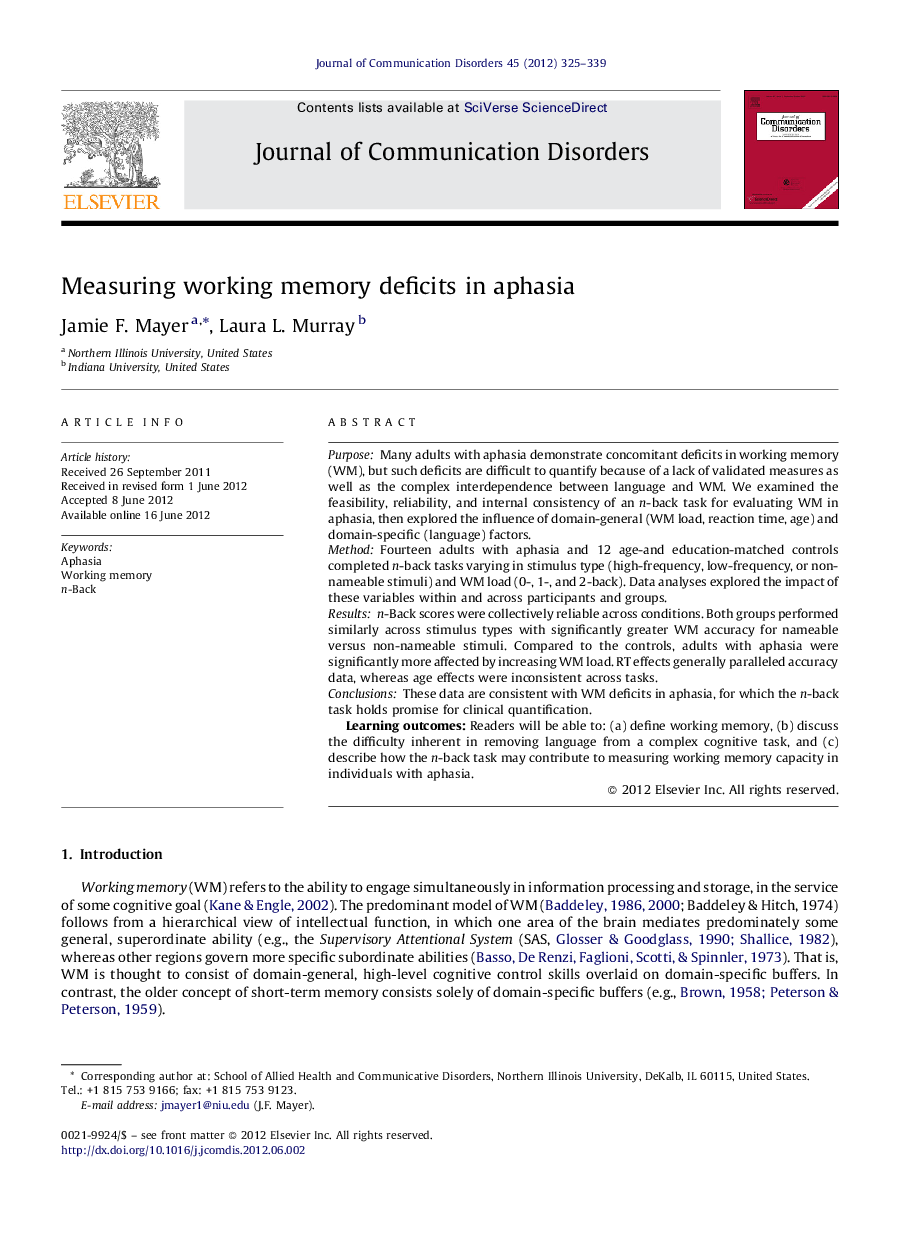| کد مقاله | کد نشریه | سال انتشار | مقاله انگلیسی | نسخه تمام متن |
|---|---|---|---|---|
| 910828 | 917653 | 2012 | 15 صفحه PDF | دانلود رایگان |

PurposeMany adults with aphasia demonstrate concomitant deficits in working memory (WM), but such deficits are difficult to quantify because of a lack of validated measures as well as the complex interdependence between language and WM. We examined the feasibility, reliability, and internal consistency of an n-back task for evaluating WM in aphasia, then explored the influence of domain-general (WM load, reaction time, age) and domain-specific (language) factors.MethodFourteen adults with aphasia and 12 age-and education-matched controls completed n-back tasks varying in stimulus type (high-frequency, low-frequency, or non-nameable stimuli) and WM load (0-, 1-, and 2-back). Data analyses explored the impact of these variables within and across participants and groups.Resultsn-Back scores were collectively reliable across conditions. Both groups performed similarly across stimulus types with significantly greater WM accuracy for nameable versus non-nameable stimuli. Compared to the controls, adults with aphasia were significantly more affected by increasing WM load. RT effects generally paralleled accuracy data, whereas age effects were inconsistent across tasks.ConclusionsThese data are consistent with WM deficits in aphasia, for which the n-back task holds promise for clinical quantification.Learning outcomes: Readers will be able to: (a) define working memory, (b) discuss the difficulty inherent in removing language from a complex cognitive task, and (c) describe how the n-back task may contribute to measuring working memory capacity in individuals with aphasia.
► Adults with and without aphasia completed n-back tasks varying in WM and language demands.
► The n-back task was reliable for adults with aphasia.
► n-Back performance was not consistently affected by age or vigilance.
► The aphasia group experienced a greater performance decrement at higher WM loads versus controls.
► The n-back task holds promise for quantifying WM in aphasia.
Journal: Journal of Communication Disorders - Volume 45, Issue 5, September–October 2012, Pages 325–339